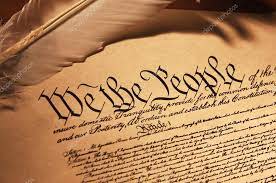Opinion/Conley: Our lively experiment was the birthplace of American federalism
- Oops!Something went wrong.Please try again later.
British ambassador to the United States Lord James Bryce, in his late-19th century analysis of our political institutions, "The American Commonwealth," called Rhode Island the American state “which has furnished the most abundant analogies to the Greek republics of antiquity.” Bryce thought Rhode Island merited this lavish praise because of the origins and nature of her institutions of local government.
The four original Rhode Island towns – Providence, Portsmouth, Newport and Warwick – existed as sovereign political entities prior to the formation of the colony of Rhode Island, and, in fact, the colony was the offspring of their voluntary union. This union was authorized by the parliamentary patent granted Roger Williams in 1643-44, and ratified by the issuance of the state’s first constitution, the Royal Charter of 1663. This charter made no explicit change in the relations between the towns to the colony, and each new town formed during the colonial period was admitted on an equal footing with the original four. All had complete powers of self-government.
Rhode Island formed a closer analogy to the federal-state system established by the Constitution in 1787 than did any other state. In the decade before the outbreak of our War for Independence, the existing Rhode Island governmental system influenced the development of America’s federal theory of government.
In 1763, at the end of the Great War for Empire — a four-phases conflict resulting in a victory for England over France in the struggle for North America — England decided to exercise much greater administrative and fiscal control over her American colonies.
The first revenue measures enacted by England were the Sugar Act of 1764 and the Stamp Act of 1765. The colonists promptly objected. The Sugar Tax was especially onerous in Rhode Island because it burdened Rhode Island’s lucrative molasses trade with the West Indies and hampered local production of rum, a staple of the slave trade.
The Stamp Act, which imposed a tax on circulating paper items such as licenses, newspapers and legal documents, was a novel internal tax rather than an external one on trade. It brought wider opposition. Dissenting colonies, led by Massachusetts, called a Stamp Act Congress, which met in New York City in October 1765, with Rhode Island and eight other colonies attending. The delegates drafted a protest and petitions, asserting that an internal levy was “taxation without representation” because the colonies did not have members in the British Parliament.
Fortunately, cooler heads prevailed on both sides of the Atlantic. England repealed the Stamp Act in 1766, but simultaneously passed the face-saving Declaratory Act, asserting that Parliament by legislation can “bind the colonies in all matters whatsoever.”
In 1765, Rhode Island’s governor, Stephen Hopkins, promptly responded to England’s imperial reorganization plan by publishing an influential treatise entitled "The Rights of Colonies Examined." It not only denied the power of Parliament to levy a direct tax on the colonies without their consent, but also proclaimed a federal conception of the British Empire whereby the colonies were sovereign in matters of local concern subject only to the king. In 1766, Hopkins’ essay was republished in London.
In 1768, Silas Downer, a colleague of Hopkins, delivered an oration at the dedication of a Providence Liberty Tree that he subsequently published. Downer forthrightly denied the authority of Parliament to make laws of any kind to regulate the colonies a full six years before any other patriot dared to enunciate this doctrine in public.
John Dickinson of Pennsylvania and Delaware joined the Rhode Island duo of Hopkins and Downer in developing a theory of federalism. Dickinson, justly styled “the Penman of the Revolution,” wrote his "Letters from a Farmer in Pennsylvania" in 1768 to oppose the Townsend Acts, the second wave of taxes on the colonies. This work also espoused the notion of a federal empire.
Hopkins and Downer both died in 1785, but Dickinson, the principal draftsman of the Articles of Confederation, was present at the Constitutional Convention of 1787, where he championed the creation of a government based on federalism and state sovereignty. Having contributed to its formulation, Rhode Island’s leaders demanded such a system in return for this state’s grudging ratification of the Constitution on May 29, 1790.
Patrick T. Conley is Rhode Island's historian laureate.

This article originally appeared on The Providence Journal: The colony of Rhode Island was the birthplace of American federalism
